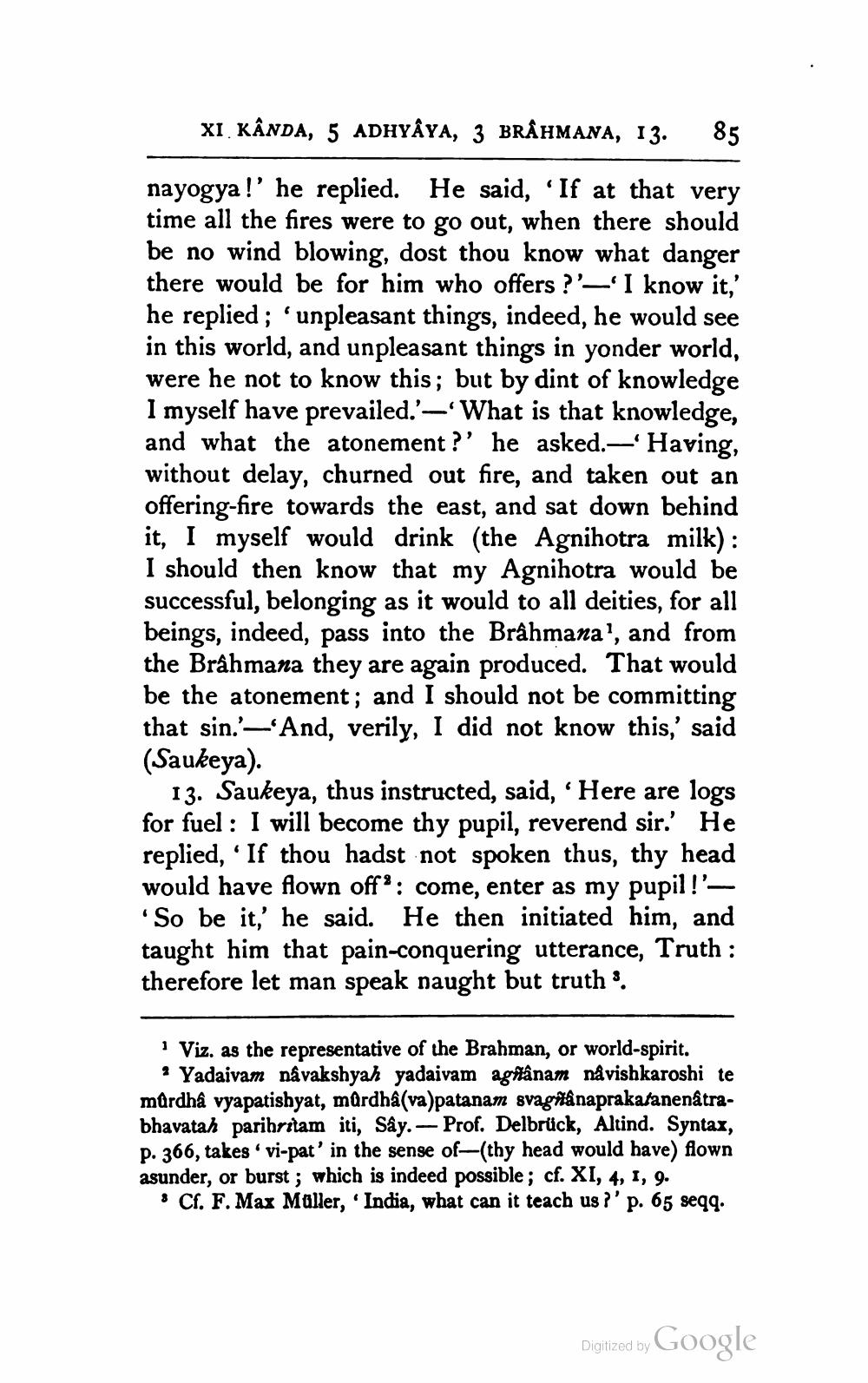________________
XI KÂNDA, 5 ADHYAYA, 3 BRÂHMANA, 13.
85
nayogya!' he replied. He said, 'If at that very time all the fires were to go out, when there should be no wind blowing, dost thou know what danger there would be for him who offers ?'-'I know it,' he replied ; 'unpleasant things, indeed, he would see in this world, and unpleasant things in yonder world, were he not to know this; but by dint of knowledge I myself have prevailed.'—'What is that knowledge, and what the atonement ?' he asked. — Having, without delay, churned out fire, and taken out an offering-fire towards the east, and sat down behind it, I myself would drink (the Agnihotra milk) : I should then know that my Agnihotra would be successful, belonging as it would to all deities, for all beings, indeed, pass into the Brâhmana', and from the Brahmana they are again produced. That would be the atonement; and I should not be committing that sin.'—'And, verily, I did not know this,' said (Saukeya).
13. Saukeya, thus instructed, said, 'Here are logs for fuel : I will become thy pupil, reverend sir.' He replied, If thou hadst not spoken thus, thy head would have flown off: come, enter as my pupil!''So be it,' he said. He then initiated him, and taught him that pain-conquering utterance, Truth : therefore let man speak naught but truth $.
1 Viz. as the representative of the Brahman, or world-spirit.
? Yadaivam nâvakshyah yadaivam agitânam nåvishkaroshi te mardha vyapatishyat, mQrdhâ(va)patanam svagnânaprakatanenâtrabhavatah parihritam iti, Sây. - Prof. Delbrück, Altind. Syntax, P. 366, takes vi-pat' in the sense of-(thy head would have) flown asunder, or burst ; which is indeed possible; cf. XI, 4, 1, 9.
Cf. F. Max Müller, 'India, what can it teach us ?' p. 65 seqq.
Digitized by Google




